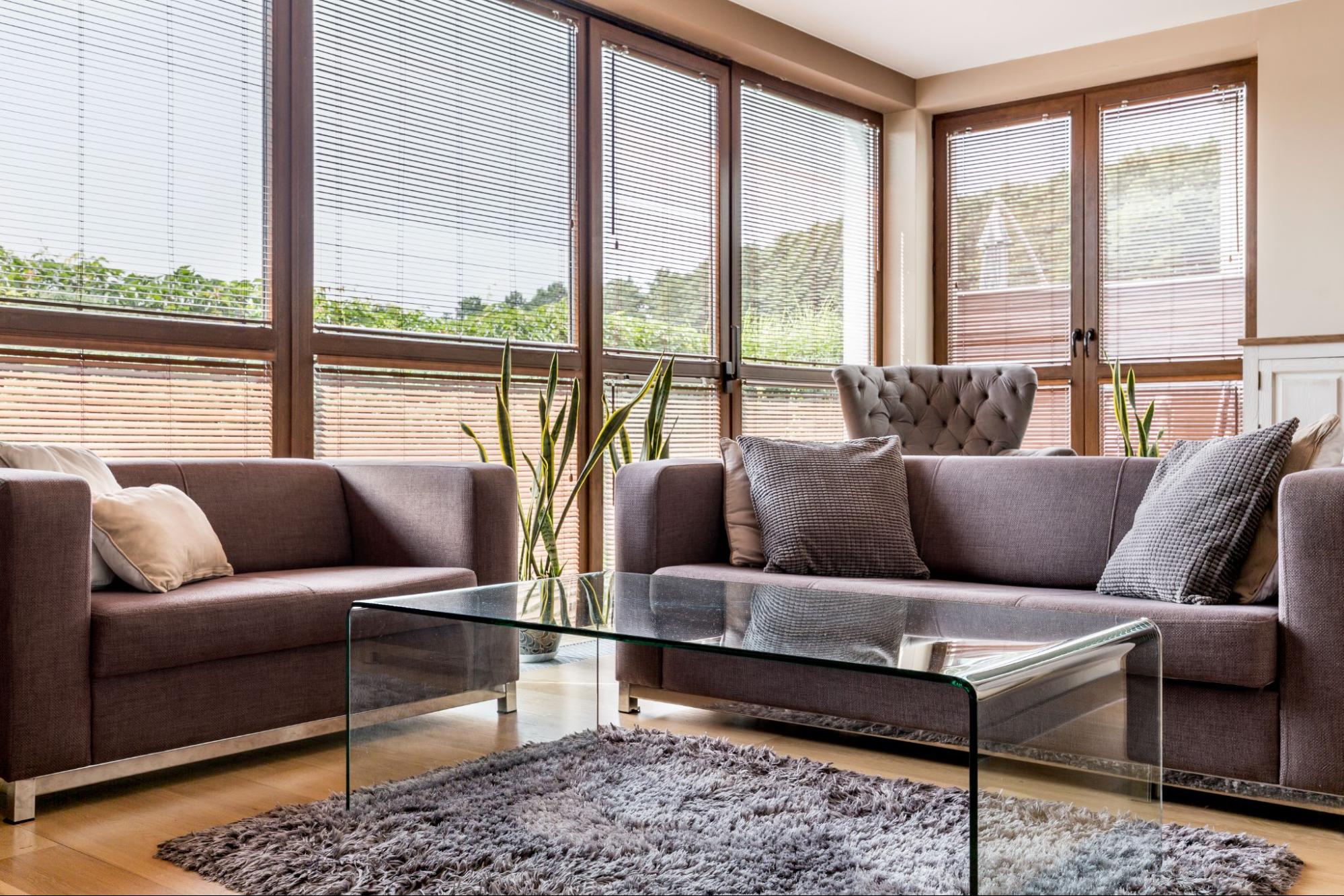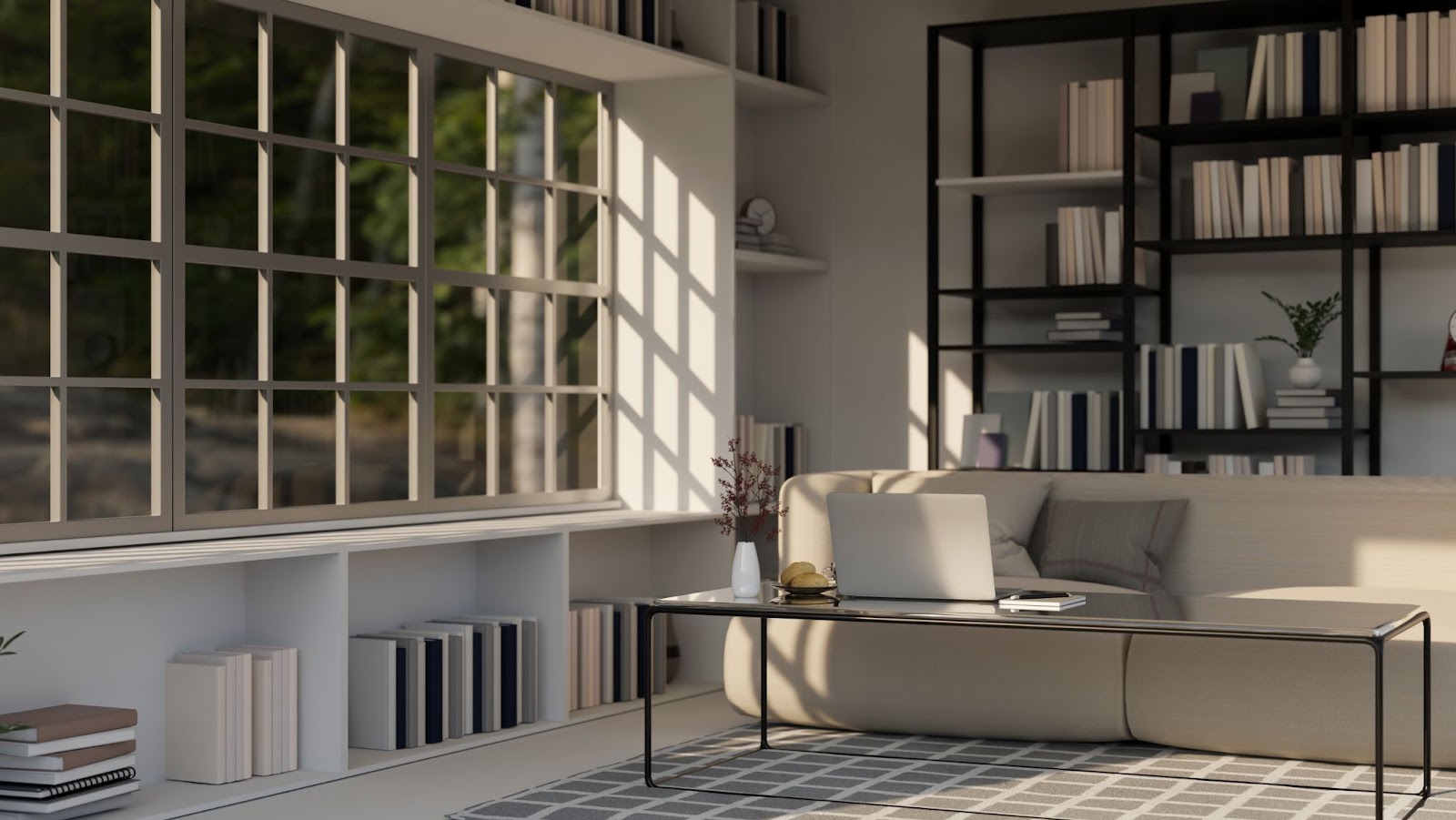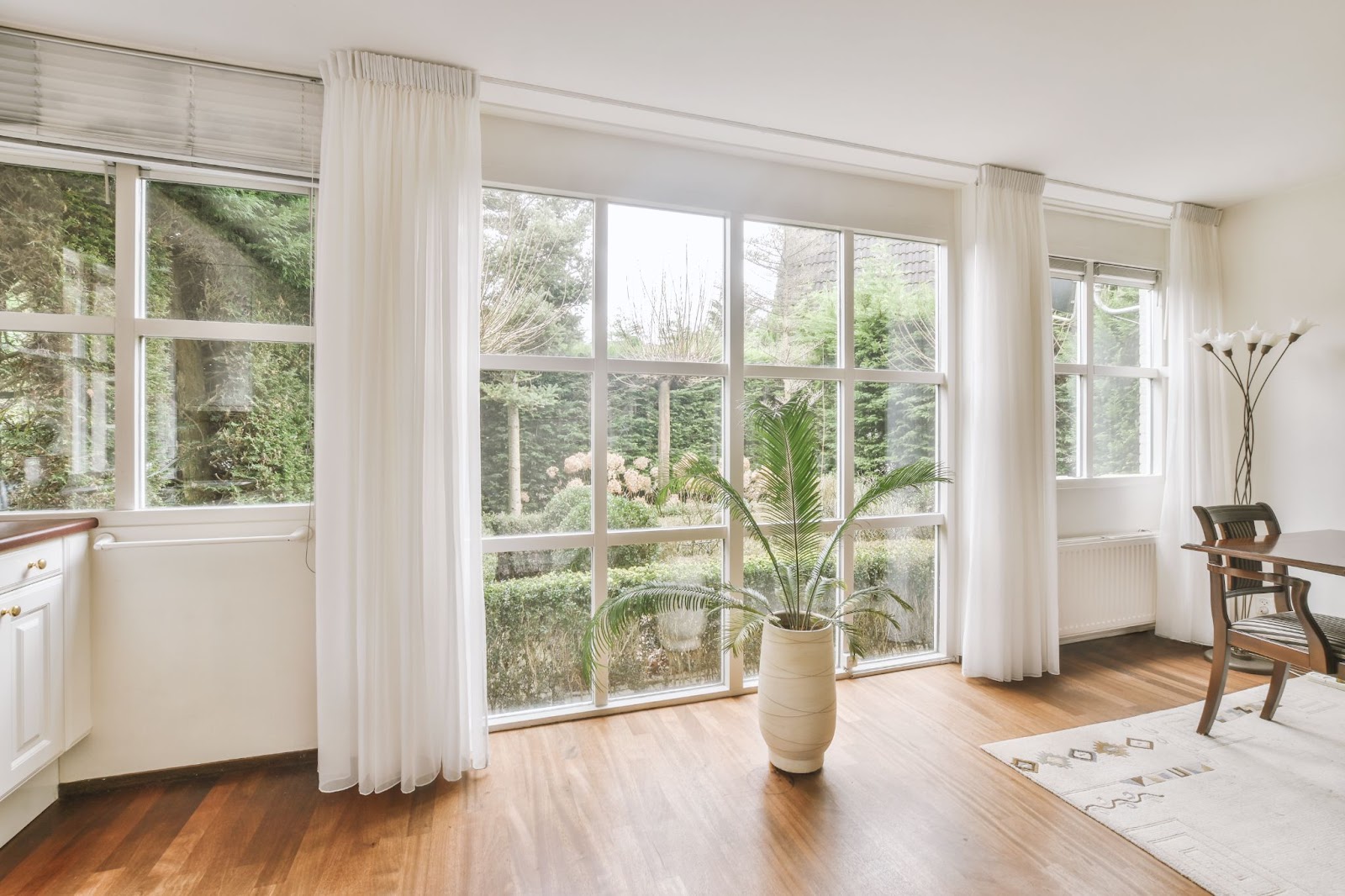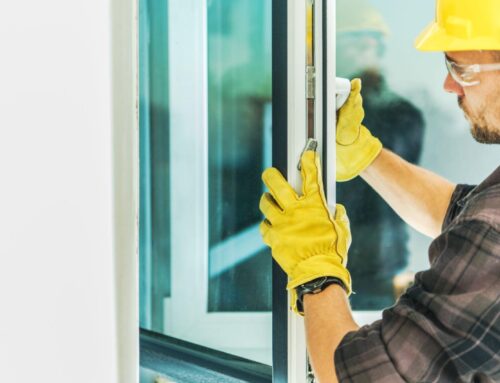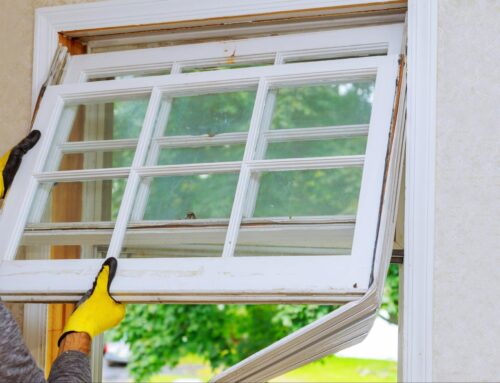Glass windows shape modern architecture by blending functionality with aesthetic appeal. Their ability to enhance natural light, improve energy efficiency, and complement structural designs makes them essential in residential and commercial spaces. Different glass windows cater to specific needs, offering benefits for insulation, security, noise reduction, and visual appeal. Some prioritize durability and safety, while others focus on energy conservation or decorative features. Selecting the right type depends on climate conditions, design preferences, and performance requirements, ensuring a balance between practicality and style.
The Common Features and Benefits of Glass Windows
Glass windows influence any building’s energy efficiency, security, and comfort. Different types offer varying insulation levels, durability, and aesthetics, making the selection process crucial. Choosing the wrong window type can lead to higher energy costs, reduced safety, or poor lighting conditions. Exploring the most common options helps make informed decisions that align with functional and design needs.
Energy Efficiency Impacts Utility Costs
Glass windows play a significant role in regulating indoor temperature, affecting heating and cooling expenses. Double-pane and Low-E glass windows reduce heat loss during winter and minimize heat gain in summer, leading to lower energy bills. Poorly insulated windows allow drafts and temperature fluctuations, forcing HVAC systems to work harder. Investing in the right glass type improves home efficiency and reduces long-term utility expenses.
Security and Safety Depend on Window Strength
Stronger glass windows provide better protection against break-ins, accidents, and environmental hazards. Laminated and tempered glass resists impact and reduces the risk of injury by breaking into small, less harmful pieces. Standard single-pane glass shatters easily, increasing the likelihood of security breaches and accidents. Choosing reinforced glass enhances safety, making homes and businesses more secure.
Aesthetic Appeal Enhances Property Value
Glass windows complement architectural styles and interior designs, contributing to a building’s visual appeal. Frosted and tinted glass options add privacy and decorative elements without compromising natural light. The right choice enhances curb appeal, making properties more attractive to buyers and increasing resale value. Stylish and functional glass windows create a modern, sophisticated appearance.
Noise Reduction Improves Indoor Comfort
External noise disrupts daily life, affecting sleep quality and overall well-being. Double-pane and laminated glass windows provide adequate sound insulation, reducing outside disturbances. Standard glass options allow more noise penetration, making them less suitable for busy urban environments. Installing noise-reducing windows creates a quieter, more comfortable indoor space.
Durability Affects Maintenance and Longevity
Glass windows vary in durability, influencing maintenance needs and long-term performance. Tempered and laminated glass options withstand impact and environmental stress better than standard single-pane glass. Fragile glass requires frequent repairs or replacements, increasing maintenance costs over time. Choosing a durable window type reduces upkeep efforts and extends its lifespan.
Common Types of Glass Windows That Homeowners Need to Know
Glass windows influence energy efficiency, security, and aesthetics in any home. Different types offer unique benefits, including insulation, durability, and design flexibility. Choosing the right glass window depends on the climate, budget, and specific household needs. Exploring the most common options helps homeowners make informed decisions that enhance comfort and functionality.
Single-Pane Glass Windows
Single-pane glass comprises a single sheet, making it the most basic window option. This type provides minimal insulation, increasing energy costs in extreme climates. Its affordability makes it a popular choice for budget-conscious homeowners, but it lacks modern energy efficiency benefits. Noise reduction is limited, making it less ideal for homes in busy areas. Upgrading to double-pane or laminated glass improves insulation and security.
Double-Pane Glass Windows
The double-pane glass features two layers separated by an insulating gas, improving thermal performance. This design reduces heat loss in winter and minimizes heat gain in summer, leading to lower energy bills. Soundproofing capabilities make it an excellent choice for homes in noisy neighborhoods. Long-term energy savings and improved comfort offset a higher upfront cost. Regular maintenance ensures the seals remain intact to prevent gas leaks.
Triple-Pane Glass Windows
Triple-pane glass adds an extra layer of insulation, making it highly energy-efficient. This type significantly reduces noise pollution, providing a quieter indoor environment. Due to superior thermal resistance, cold climates benefit the most from triple-pane windows. The added weight requires sturdy window frames, which can increase installation costs. Homeowners looking for maximum insulation and long-term savings often choose this option.
Tempered Glass Windows
Tempered glass undergoes a heating and cooling process that enhances its strength. Breaking results in small, rounded pieces rather than sharp shards, improving safety. This type is ideal for homes with large windows or areas prone to impact, such as patio doors. High durability makes it resistant to extreme temperature changes and physical force. Customization is limited since tempered glass cannot be cut or reshaped after manufacturing.
Laminated Glass Windows
Laminated glass consists of multiple layers bonded with an interlayer that holds the glass together when shattered. This structure enhances security, making it difficult for intruders to break through. Noise reduction is another advantage, helping create a quieter living space. UV protection prevents furniture and flooring from fading due to sun exposure. Despite a higher price, laminated glass adds durability and safety to any home.
Low-E Glass Windows
Low-emissivity (Low-E) glass has a special coating that minimizes heat transfer while allowing natural light inside. This coating reflects heat into the home during winter and keeps interiors cool in summer. UV protection reduces glare and prevents interior furnishings from fading. Energy efficiency improves without sacrificing visibility, making it ideal for eco-conscious homeowners. Some Low-E coatings slightly tint the glass, affecting natural light perception.
Frosted Glass Windows
Frosted glass features an etched or coated surface that diffuses light while maintaining privacy. Bathrooms, offices, and decorative areas benefit from this type’s balance between illumination and discretion. The textured surface reduces glare and adds a stylish element to home interiors. Cleaning requires extra care to prevent smudging and maintain its frosted effect. Limited visibility makes it unsuitable for rooms needing clear outside views.
Tinted Glass Windows
The tinted glass contains pigments or coatings that reduce glare and heat absorption. This type enhances privacy without completely blocking natural light. It also improves energy efficiency by limiting the amount of heat entering the home, reducing cooling costs. Darker tints can make interiors appear dimmer, requiring strategic placement. Homeowners seeking both privacy and sun protection opt for tinted windows.
Which Glass Windows Are Best for You?
Choosing the right glass windows depends on insulation needs, security concerns, and aesthetic preferences. Different options offer unique advantages, ranging from energy efficiency to noise reduction. Selecting the best type requires evaluating climate, budget, and home design. A well-informed decision improves comfort, reduces energy costs, and enhances property value.
Consider Energy Efficiency for Cost Savings
Glass windows impact heating and cooling expenses by regulating indoor temperatures. Low-E, double-pane, and triple-pane glass reduce heat transfer, keeping interiors comfortable year-round. Poor insulation leads to higher utility bills due to temperature fluctuations. Investing in energy-efficient windows lowers long-term costs and improves home sustainability.
Evaluate Security and Durability Needs
Robust glass options enhance safety by resisting impact and forced entry. Laminated and tempered glass offers better protection than standard single-pane glass. Fragile windows increase the risk of break-ins and accidents, improving security-focused options. Selecting durable glass ensures long-lasting performance and peace of mind.
Think About Noise Reduction for a Quieter Home
Homes in busy areas benefit from windows that block outside noise. Laminated, double-pane glass minimizes sound transmission, creating a more peaceful indoor environment. Standard single-pane glass allows more noise, making it less ideal for urban settings. Choosing soundproof windows improves sleep quality and overall comfort.
Assess Privacy Needs Without Sacrificing Light
Some glass types provide privacy while still allowing natural light inside. Frosted and tinted glass offer discreet solutions for bathrooms, offices, and street-facing windows. Clear glass maximizes visibility but may require additional coverings for privacy. Selecting the right balance ensures comfort without blocking natural illumination.
Match the Aesthetic to Your Home’s Style
Glass windows influence a home’s overall look, enhancing curb appeal and interior design. Frosted, tinted, and decorative glass add unique visual elements to any space. Standard clear glass works well for modern and traditional styles but may lack distinctive character. Choosing a design that complements the architecture improves both function and appearance.
Factor in Maintenance and Longevity
Some glass types require more upkeep than others to maintain clarity and performance. Low-E and laminated glass provide long-term benefits but need careful cleaning to preserve coatings. Standard glass is easier to clean but may lack durability in extreme weather conditions. Selecting a low-maintenance option reduces upkeep efforts and ensures lasting efficiency.
Choosing the Best Types of Glass Windows for Your Home
Glass windows serve different purposes, offering benefits such as insulation, security, noise reduction, and aesthetic appeal. Single-pane, double-pane, triple-pane, tempered, laminated, Low-E, frosted, and tinted glass each provide unique advantages suited for specific needs. Choosing the right type depends on energy efficiency, durability, and design preferences. A well-selected glass window improves home comfort, reduces long-term costs, and enhances overall property value.
Get expert advice on selecting and maintaining glass windows on our Resilience Glass blog.

